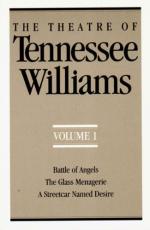|
This section contains 5,035 words (approx. 17 pages at 300 words per page) |

|
SOURCE: Wolter, Jürgen C. “Tennessee Williams's Fiction.” In Tennessee Williams: A Guide to Research and Performance, edited by Philip C. Kolin, pp. 220-31. Westport, Conn.: Greenwood Press, 1998.
In the following essay, Wolter outlines the prevalent critical approaches to Williams's short stories.
Biographical Context
Tennessee Williams's obvious urge to publicize his personal dilemmas shows not only in his Memoirs and the novel Moise and the World of Reason, which has been called a “fictional counterpart to the Memoirs” (Savran 154) and an “apologia pro vita sua” (Sklepowich 538), but in all of his writings, and particularly in his fiction. For Gore Vidal, the stories are “the true memoir of Tennessee Williams” (xx). Biographers (e.g., Leverich, Spoto) explain the authorial self-reflexiveness of his works and demonstrate that some stories are lightly veiled autobiographies. For example, Spoto introduces The Roman Spring of Mrs. Stone as a fictionalized journal of Williams's life...
|
This section contains 5,035 words (approx. 17 pages at 300 words per page) |

|


